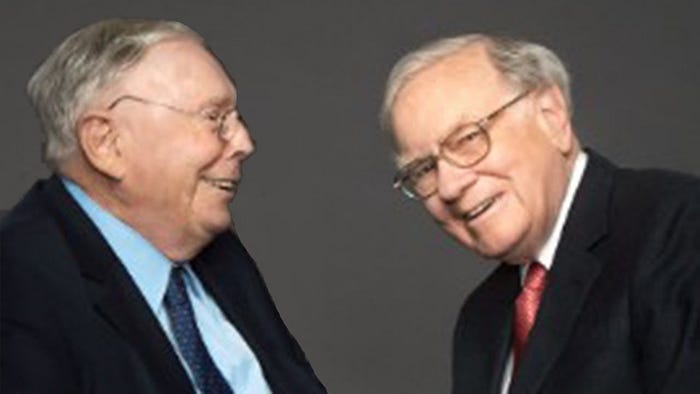The Amazing Life Story of Charlie Munger before Berkshire Hathaway
It was while reading the newsletter of Mission.org (one of my favorites) that I chanced upon the life story of Charlie Munger and I was super amazed. This was something which deserved to be broadcast to the world. Not just for his fascinating journey but for the sheer persistence and grit which Munger displayed as he got knocked with tragedy after tragedy but resurrected to become one of the most iconic investor legends in today’s world. In a sense, it also highlights the utopian case of what ‘truly loving your job’ can result in when we look at the dynamic investor duo of Warren Buffet (88) and Charlie Munger (95) and their five-decade plus journey.
Buffet and Munger are already media favorites with lots of their insights on investing, business and success captured frequently. Their Annual newsletters (2018 out recently) and Shareholders Meeting in Omaha every year in May are one of the most keenly anticipated events in the investor world (all truly well deserved!). Relatively less though is known about Charlie Munger’s early childhood and growing up years and the personal demons he fought before he became what he is today (which will be the focus of my piece). So before diving in, I provide a brief bio about Munger (for those who don’t know much about him) and promise won’t be coming back to his present life in this piece again!
Munger is the Vice Chairman of Berkshire Hathaway and is reportedly worth shy of just $2bn. He is also a Chairman of the Daily Journal Corp and sits on the board of retailer Costco. In the 54 years (and counting) reign of Buffett and him at Berkshire, the company has returned 2,000,000% (you gotta be kidding me!) on its initial value only through investing capital in enterprises at the ‘right time’ and for the ‘right duration’ most of which went on to be the best market winners (Amex, Coca-Cola, Southwest Airlines, Walt Disney, Gillette, GEICO, Goldman Sachs, Apple etc.)
But how did Charlie Munger meet Warren Buffet and most importantly what was his life like prior to Berkshire like? Let’s begin!
Charlie grew up in a small mid-western town in the US. Just as he enrolled in the University of Michigan for graduation Pearl Harbor was attacked. As the U.S. declared war, he dropped out to enlist in the U.S. Army Air Corps. It was 1943, and the small division of the Army was spun out into the US Air Force. Munger became an officer, was stationed to Alaska and while training met Nancy Huggins. The two started dating and married soon after. The years slowly passed accompanying death, destruction, and the madness of war.
As the war ended it brought relief but it also brought along a nagging question for Charlie, What next? The answer for him was to think bigger. Charlie took a risk, ignored the conventional wisdom to finish his undergraduate degree first and enrolled in advanced graduate courses at Caltech. Once confident enough he used his graduate level courses to sneak into Harvard Law School, where he graduated magna cum laude (top distinction). In the military, he had learned to play cards. And at Harvard, the hobby took a more sophisticated and professional approach as he turned his attention towards a larger gambling arena- “The stock market”. He was 29 and life looked all hunky dory for him till now. But that was not to be for long. After 8 years of marriage and 3 children, his marriage was not working and divorce followed.
Divorce had a huge social stigma attached at that time and it was the first blow for Munger. His wife also got almost everything in the separation, including the house. Charlie moved into “dreadful bachelor digs” and drove an “awful” yellow Pontiac with a shoddy repaint job. He, however, summoned all his courage, worked crazy all week to recover the money lost in the divorce. On Saturdays, outing with children to the zoo was meant as a palliative to forget his exhaustion and separation.
This was just the beginning and life had to still test him out further. A year later, his 8-year-old son Teddy, got leukemia which had no treatment and no medical insurance in those days. Charlie paid for everything out-of-pocket because there was no health insurance. Each day he would take Teddy to the hospital for checkups while taking care of his other two children and practicing law. Those 11 months were the ‘toughest’ as he saw his son growing weaker nearing his death. According to his friend Rick Guerin, Charlie would visit the hospital when his son “was in bed and slowly dying, hold him for a while, then go out walking the streets of Pasadena crying.” Teddy passed away at the tender age of 9 leaving him heartbroken.
At this stage of life with everything going against him- a failed marriage, being financially broke, losing his son, it would have been tempting to just give it all up and turn to vices (alcohol, drugs) as so many people around him had done at that time. But Charlie was not that man and he kept going.
Later, he reflected on the inner turmoil that he could’ve given in to and said:
“Generally speaking, envy, resentment, revenge, and self-pity are disastrous modes of thought. Self-pity gets fairly close to paranoia, and paranoia is one of the very hardest things to reverse. You do not want to drift into self-pity… Self-pity will not improve the situation.”
As he started feeling better, he began searching for a new wife. Soon, he found Nancy Barry who also had two children from a previous marriage as did Charlie. The six of them became family and things started looking up. That was not to be for too long though as he heard of the untimely demise of his father. Charlie had to return home to Nebraska to support his family through the challenging times. While there, a friend insisted he meet a quirky mid-western investor (no points for guessing who he was!). The two of them hit it off and remained in close touch as Charlie returned back to California.
Back in California, Charlie left his job and started his own law firm focused on real estate. It would not be long before he would stop practicing law entirely to focus on investment management. As he sharpened his investor skills and blended his passion (recall the earlier card playing and stock market days) with work, his investments started delivering an annual return of 20%+ which was 4 times the average market rate of the time. Ambition burned within him, but adversity being his constant companion struck again soon enough.
His investments did not go as expected and he faced two years of heavy losses. His gut instinct told him to fold up and he closed his investment partnership. A couple of years later at the age of 52, he developed cataracts. The botched surgery left him blind in one eye and caused complications similar to cancer. His blind eye throbbed with pain so intense that he couldn’t stand up. Desperate to end it, he requested the doctor to remove his entire eye.
Eager to prove his investor mettle and with the underdog fire burning, he returned to investing. As he stepped up his game he learned from his previous struggles to be calm, careful and take calculated forward-thinking risks. Throughout this time, his friendship with the quirky midwestern investor continued. Slowly but steadily Charlie being the diligent learner had mastered his investing skills to an extent that he became that quirky investor’s investment advisor!
As they started investing together they first bought stock in a textile company which started to wane. The two doubled down to find and invest in other promising businesses and retained the name of the failing textile business for their holding company- Berkshire Hathaway.
The quirky investor friend was… Warren Buffett!

Munger went through personal hell before he turned his life around. Each of his misfortunes was bad enough to knock him down badly, wallow in self-pity and doubt and succumb to depression. But he persevered through rock solid determination and an iron will.
He remembers Epictetus when talking of the countless adversities faced. “Every missed chance in life was an opportunity to behave well, every missed chance in life was an opportunity to learn something, and that your duty was not to be submerged in self-pity, but to utilize the terrible blow in a constructive fashion.”
Winston Churchill also said it best, “If you’re going through hell, keep going. There is always a way up and out. If you are persistent enough and have the courage not to quit, you’ll find it.”
Ending the piece with five of Munger’s best quotes (was tough to pick since there are quite a lot!)
“You’re looking for a mispriced gamble. That’s what investing is. And you have to know enough to know whether the gamble is mispriced. That’s value investing.”
“You don’t have to be brilliant, only a little bit wiser than the other guys, on average, for a long time”
“The big money is not in the buying and selling but in the waiting”
“Like Warren, I had a considerable passion to get rich, not because I wanted Ferraris — I wanted the independence. I desperately wanted it.”
“I always say I want to know where I would die so I can never go there.”
Heavy credits for this story and idea to: Mission Blog. You guys are terrific!
If you got curious to know more about the amazing person that Charlie Munger is, here is an absolutely fantastic repository by Farnam Street (treasure treat and another personal favorite!)
